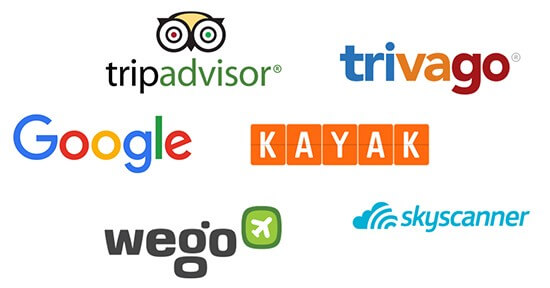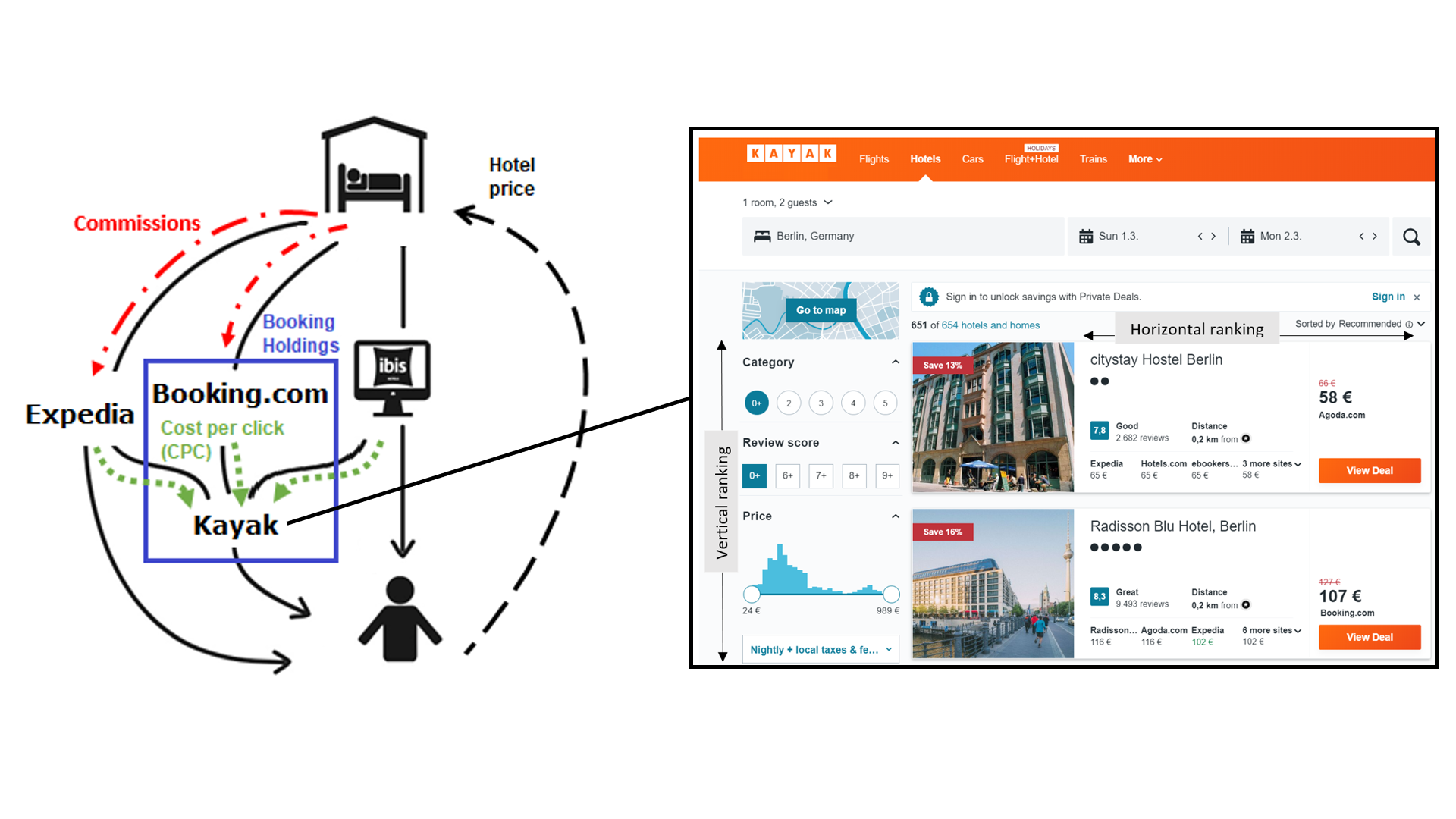Does a meta-search platform favor its affiliated sales channels in its ranking?
This blog is written by Reinhold Kesler.
Digital platforms have become important intermediaries in many markets, be they traditional or newly created ones. Their key promise is to bring about lower search and distribution costs, better matches of market participants, and transparency about offers. However, they also have been shown to be able to steer consumers toward certain products and suppliers through their recommendations. This steering is increasingly often met with concern, especially with the presence of vertical integration of platforms along the consumer journey and possible incentives to bias the recommendation.

The corresponding policy debate is shaped by prominent cases of the European Commission that involve Google favoring its comparison shopping service over others and Amazon’s hybrid role as a marketplace and seller giving an edge over third party sellers. In this respect, the European Digital Markets Act (DMA), which entered into force in November 2022, aims to restrict the power of large online platforms that are designated as gatekeepers. These are subject to do’s and don’ts with regard to a range of business practices. One of the prohibitions comprises self-preferencing, which forbids treating own services and products more favorably than those of a third party.
In a recent study published in Quantitative Marketing and Economics, we explore self-preferencing in the context of online hotel booking. In particular, we empirically study whether an integrated meta-search platform favors its own affiliated sales channels. Meta-search platforms pool offers from different hotels – as do online travel agents like Booking.com and Expedia – but, in addition, for each hotel, they display the different sales channels available from which they predominantly retrieve payments through cost per click (CPC, see Figure 1, left). This gives a vertical and horizontal ranking, respectively (see Figure 1, right). The two rankings allow a price comparison on a more aggregate level, thereby making these platforms often the starting point of a consumer journey towards booking a hotel and economically relevant, according to a sector inquiry by the German competition authority. Interestingly, the two major online travel agents (Booking.com and Expedia) each own a meta-search platform (Kayak and Trivago), where the respective acquisitions raised concerns of search bias in favor of related sales channels.

We web-scraped search results for overnight stays in Paris from 2014 until 2017 on Kayak, the meta-search platform already belonging to the Booking Holdings at that time. In turn, we look at the determinants of both the vertical and horizontal rankings and, in particular, whether the company affiliation plays a role.
For the horizontal ranking, we find that online travel agents of the Booking Holdings are more often in the most prominent spot than they are among the cheapest sales channels. In regressional analyses accounting for differences in prices and popularity, among other factors, we indeed find Booking-affiliated online travel agents to be more likely among the visible and most prominent sales channels on Kayak than competing online travel agents. For the vertical ranking, the results suggest that hotels are ranked worse when rival online travel agents, i.e., the ones affiliated with the Expedia Group, are the cheapest sales channel. On average, such hotels are ranked eight positions worse. We do not find this pattern for the vertical ranking in an analogous empirical analysis on Google Hotels, a meta-search platform that is not vertically integrated with an online travel agent.
However, our empirical analysis is also subject to caveats. First, we are not able to observe the actual cost per click paid to Kayak by sales channels, which may vary and are presumably taken into account for the rankings. We try to address this by analysing the non-integrated meta-search platform Google Hotels, which potentially experiences a similar heterogeneity in payments and distinguishing chain and independent hotels, which may differ with respect to setting the CPC. Second, a concern may be the presence of systematic differences across sales channels unobserved to us (e.g., one channel having a breakfast option), which are potentially leading to better ranking positions. However, Kayak’s main goal is to provide comparability across offers, and Google Hotels may again serve as a benchmark, while this kind of differentiation of amenities is also not clear given similar commission rates across online travel agents.
Assuming these caveats to be less problematic, the results indicate that Kayak takes joint revenues of the integrated firm into account (i.e., both commissions and cost per click, see Figure 1) and that it favors affiliated sales channels.
Although we cannot provide a definite conclusion on a socially optimal ranking, there are potential risks of ranking optimization by a vertically integrated meta-search platform, as suggested by the results. First, such a ranking may diverge from consumer interests and, by this, lower search quality. Second, worse ranking positions that come along with lower prices elsewhere may work similarly to price parity clauses that have been abolished in some European countries and are also prohibited for gatekeepers designated under the DMA.
This brings us back to the policy debate revolving around the power of digital platforms and how to warrant a contestable and fair digital economy. Our article provides a case in point to study how vertical integration affects the recommendation of products and suppliers by a digital platform but also demonstrates the challenges of the empirical analyses which necessitate better data. More generally, such empirical studies can inform the crucial debate about the implementation and enforcement of regulations involving business practices like self-preferencing.
This blog is based on Reinhold’s research published in Quantitative Marketing and Economics, which is included in the Platform Papers references dashboard:
Cure, M., Hunold, M., Kesler, R., Laitenberger, U., & Larrieu, T. (2022). Vertical Integration of Platforms and Product Prominence. Quantitative Marketing and Economics, 20, 353–395.